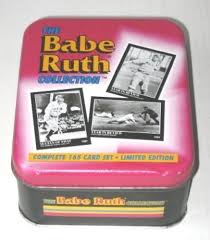The Legendary Babe Ruth: Impact on Baseball and America

Introduction
George Herman “Babe” Ruth, one of the most iconic figures in sports history, defined the game of baseball during the early 20th century. Known for his larger-than-life personality and extraordinary talent, Ruth’s impact on the sport is both profound and enduring. With his remarkable achievements, he not only transformed baseball but also became a symbol of American culture during a transformative period in history. Understanding Babe Ruth’s significance helps illuminate the social and cultural fabric of the United States during the 1920s and beyond.
Early Life and Career
Babe Ruth was born on February 6, 1895, in Baltimore, Maryland. After a troubled childhood, he found solace in baseball. His career began in baseball as a pitcher for the Boston Red Sox in 1914, but it was his transition to an outfielder that ultimately defined his legacy. Ruth’s home run-hitting prowess came into full bloom as he set numerous records, including the single season home run record in 1927, hitting 60 home runs, a number that stood for 34 years.
Achievements and Records
Babe Ruth’s list of achievements is remarkable. Over his 22-year career, he played for the Red Sox, New York Yankees, and Boston Braves. He was a two-time All-Star and a 12-time American League home run leader, finishing his career with 714 home runs. His knack for pressuring opposing pitchers and thrilling crowds propelled baseball into a new era of popularity known as the “live-ball” era. Ruth’s performance during the 1927 season remains legendary, and his style of play helped to establish a new standard in the sport.
Cultural Impact
Beyond his athletic prowess, Babe Ruth became a cultural phenomenon, embodying the Roaring Twenties’ spirit of freedom and exuberance. His celebrity was bolstered by extensive media coverage, making him one of the first sports superstars to achieve a national following. Ruth’s persona transcended athletics; he was known for his charitable work and larger-than-life personality, which resonated with the American public. His impact is immortalized in films, literature, and the collective memory of baseball fans.
Conclusion
Babe Ruth’s legacy is undeniable and continues to influence the game of baseball today. He altered the way the sport is played, viewed, and celebrated. Ruth’s larger-than-life character invited the public to embrace baseball not merely as a sport, but as a vital, vibrant part of American identity. As future generations analyze his career and cultural significance, it becomes clear that Babe Ruth remains an immortal figure whose influence stretches far beyond the baseball diamond.




